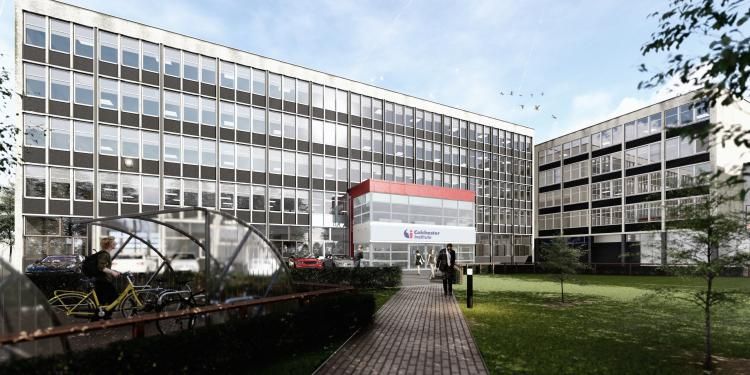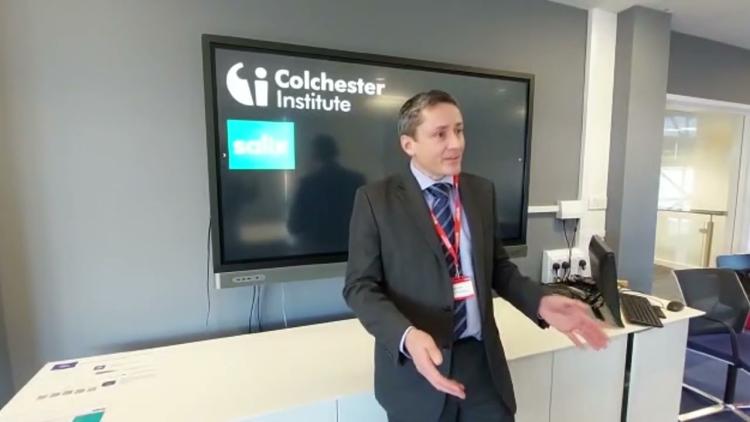Scheme:
Phase 1 Public Sector Decarbonisation Scheme
Technologies used:
Building Energy Management System (BEMS), Air source heat pump, Double glazing
Region:
East of England
Client type:
Further education institution
Your partner for a low carbon future

Phase 1 Public Sector Decarbonisation Scheme
Building Energy Management System (BEMS), Air source heat pump, Double glazing
East of England
Further education institution
Annual savings
Total grant value
Annual carbon savings tCO2e*
Colchester Institute is the largest vocational training provider in North Essex and supports over 8,000 further education, higher education and apprenticeship learners.
The £3.7m grant, provided by Salix on behalf of the Department for Energy Security and Net Zero will allow for the replacement of gas boilers with air source heat pumps and single-glazed windows with insulation panels throughout the main block.
The further education, higher education and apprenticeship students will be the main benefactors of the new low-carbon technologies with the main buildings seeing a transformational change in learning environments.
The upgraded windows and insulation will improve temperature control, therefore, making the current conditions experienced including cold draughts in the winter and overheating in the summer, a thing of the past.
As part of the College’s commitment to carbon reduction, each area of study has been tasked with creating a course module that focuses on sustainability. Bespoke tutorial sessions looking at ‘Green’ issues will be introduced in the 2021-22 academic year.

Interview with the Vice Principal of Colchester Institute, Gary Horne, on the college's work toward decarbonising its heating methods following a £3.7 million grant from the Phase 1 Public Sector Decarbonisation Scheme.
We have an ambition to support the Government’s carbon reduction targets as far as possible, and this project provides the perfect platform to take this forward.
July 2021
*tonnes of Carbon Dioxide, calculated using Green Book emissions factors for electricity published by the government.
